
Śródmieście: The Heartbeat of Warsaw
Śródmieście, the vibrant city center of Warsaw, is a fascinating blend of history, culture, and modernity. This district is the pulsating heart of the Polish capital, offering an array of attractions that cater to all types of travelers. From historical landmarks to contemporary attractions, Śródmieście provides a rich tapestry of experiences that tell the story of Warsaw's past and present. Begin your journey at the Royal Castle, a symbol of Poland's royal heritage, and take a leisurely stroll along the Royal Route, one of the city's most picturesque walks. Here, you'll encounter beautifully restored buildings, charming cafes, and high-end boutiques. The Old Town Market Square, with its colorful facades and lively atmosphere, is perfect for those looking to immerse themselves in Warsaw's historic charm. For a taste of modern Warsaw, head to the bustling Nowy Świat Street, lined with trendy shops, restaurants, and bars. Don't miss the Palace of Culture and Science, an iconic skyscraper offering panoramic views of the city. Art enthusiasts should visit the National Museum, housing a vast collection of Polish art and artifacts. Śródmieście is also home to numerous parks and green spaces like Łazienki Park, where you can relax and enjoy nature. The district's diverse dining scene offers everything from traditional Polish cuisine to international flavors, ensuring a delightful culinary experience for every visitor.
Local tips in Śródmieście
- Visit early in the morning to avoid crowds at major attractions like the Royal Castle and Old Town Market Square.
- Wear comfortable shoes as this neighborhood is best explored on foot.
- Take a guided walking tour to gain deeper insights into the history and culture of Śródmieście.
- Try local delicacies at the numerous cafes and restaurants along Nowy Świat Street.
- Use public transport or rent a bike for easy access to nearby attractions outside Śródmieście.
Śródmieście: The Heartbeat of Warsaw
Śródmieście, the vibrant city center of Warsaw, is a fascinating blend of history, culture, and modernity. This district is the pulsating heart of the Polish capital, offering an array of attractions that cater to all types of travelers. From historical landmarks to contemporary attractions, Śródmieście provides a rich tapestry of experiences that tell the story of Warsaw's past and present. Begin your journey at the Royal Castle, a symbol of Poland's royal heritage, and take a leisurely stroll along the Royal Route, one of the city's most picturesque walks. Here, you'll encounter beautifully restored buildings, charming cafes, and high-end boutiques. The Old Town Market Square, with its colorful facades and lively atmosphere, is perfect for those looking to immerse themselves in Warsaw's historic charm. For a taste of modern Warsaw, head to the bustling Nowy Świat Street, lined with trendy shops, restaurants, and bars. Don't miss the Palace of Culture and Science, an iconic skyscraper offering panoramic views of the city. Art enthusiasts should visit the National Museum, housing a vast collection of Polish art and artifacts. Śródmieście is also home to numerous parks and green spaces like Łazienki Park, where you can relax and enjoy nature. The district's diverse dining scene offers everything from traditional Polish cuisine to international flavors, ensuring a delightful culinary experience for every visitor.
Iconic landmarks you can’t miss
Łazienki Królewskie
Explore the beauty of Łazienki Królewskie, a serene park in Warsaw with stunning gardens, historical architecture, and a rich cultural heritage.
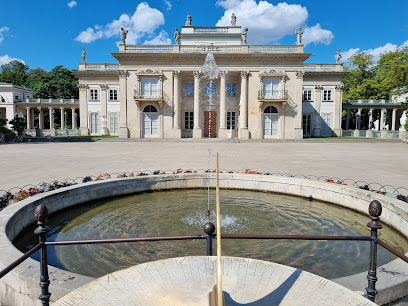
Palace of Culture and Science
Discover the Palace of Culture and Science, a monumental symbol of Warsaw's history, offering cultural experiences and stunning city views.

The Royal Castle in Warsaw
Explore the Royal Castle in Warsaw, a magnificent historical landmark showcasing Poland's rich royal heritage and stunning artistic collections.
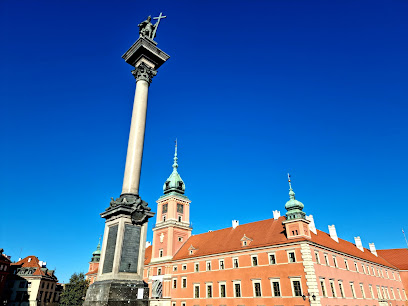
Observation deck
Experience breathtaking panoramic views of Warsaw from the Observation Deck, an essential attraction for every tourist exploring Poland's vibrant capital.
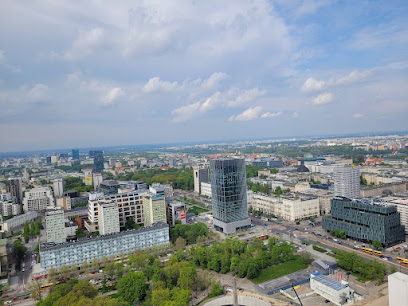
Warsaw Barbican
Explore the historical allure of the Warsaw Barbican, a stunning remnant of the city's medieval past, blending rich history with vibrant culture.
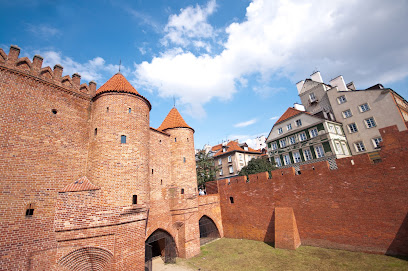
Warsaw Uprising Monument
Explore the Warsaw Uprising Monument, a powerful memorial honoring the brave fighters of the 1944 uprising in Poland's capital.
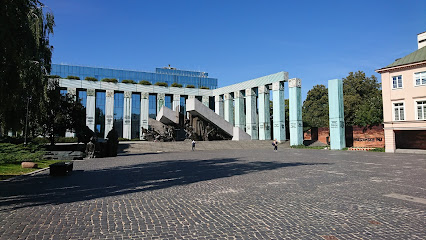
Castle Square, Warsaw
Explore Castle Square in Warsaw, a historic landmark filled with architectural beauty and vibrant cultural experiences.
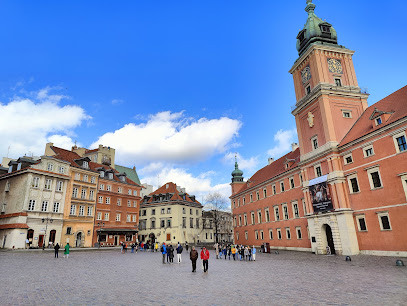
Monument to the Fallen and Murdered in the East
Discover the Monument to the Fallen and Murdered in the East in Warsaw, a poignant tribute to resilience and memory, set in a beautifully landscaped environment.
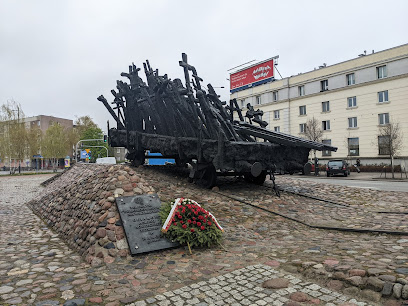
Centro Historico
Explore Centro Historico, Warsaw's UNESCO World Heritage site, where history, culture, and vibrant atmosphere coalesce in a stunning urban landscape.
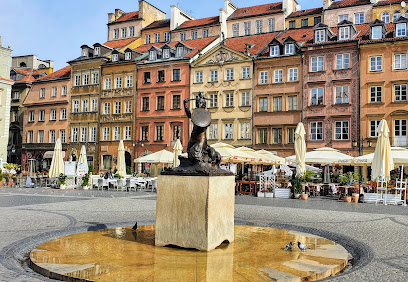
The Boy and the Swan
Discover tranquility in the heart of Warsaw at The Boy and the Swan, a serene park perfect for relaxation and artistic exploration.
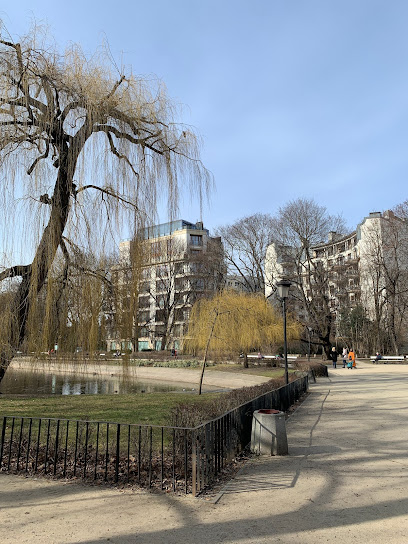
Unmissable attractions to see
Palace on the Isle
Discover the beauty and history of the Palace on the Isle, a tranquil escape in Warsaw's stunning Łazienki Park.
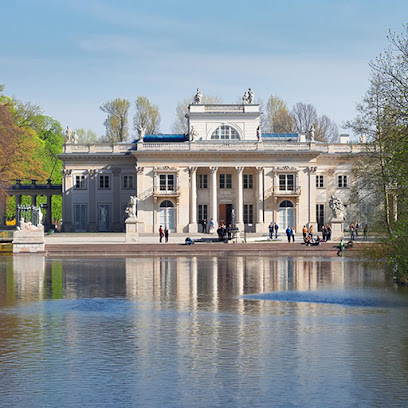
Museum of Warsaw
Explore Warsaw's vibrant history at the Museum of Warsaw, where the past comes alive through captivating exhibits and rich cultural narratives.
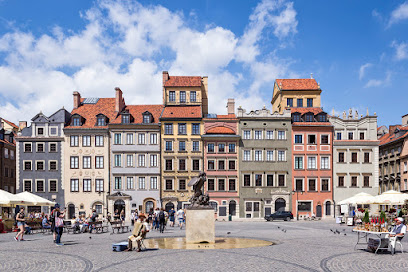
Chinese Garden
Experience the tranquility and beauty of the Chinese Garden in Warsaw, a serene escape filled with cultural richness and stunning landscapes.
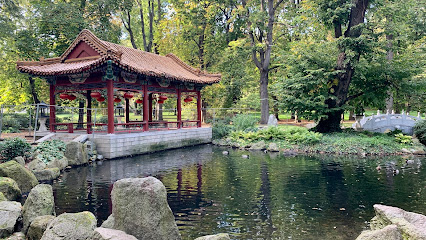
Centro Historico
Explore Centro Historico, Warsaw's vibrant heart, rich in history, stunning architecture, and cultural experiences that bring the past to life.
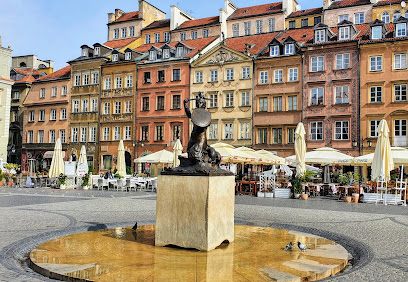
Essential places to dine
Podwale 25 Kompania Piwna
Discover authentic Polish cuisine at Podwale 25 Kompania Piwna—where tradition meets taste in the heart of Warsaw.
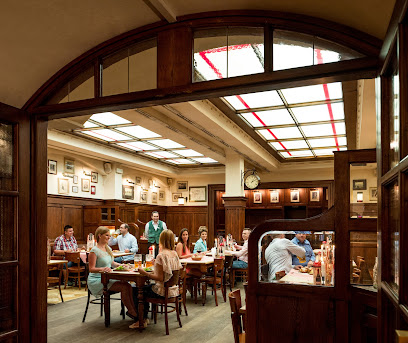
GOŚCINIEC
Savor authentic Polish cuisine at Gościniec - where traditional flavors meet modern flair in the heart of Warsaw.
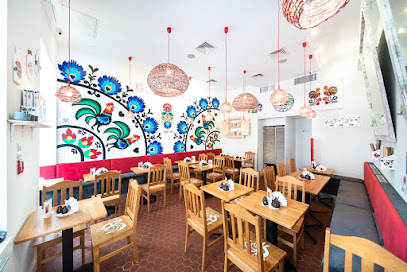
Zapiecek
Experience authentic Polish cuisine at Zapiecek in Warsaw - home of delicious pierogi and traditional dishes.
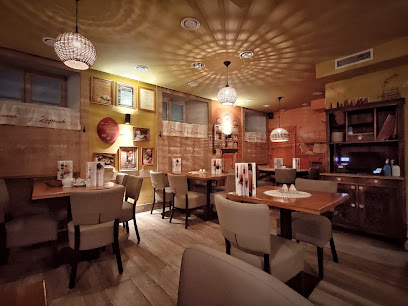
Whiskey in the Jar
Experience culinary excellence at Whiskey in the Jar – Warsaw's premier steakhouse offering exquisite dishes and an impressive whiskey selection.
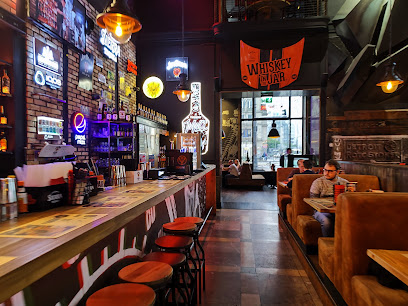
Czerwony Wieprz | restauracja polska Warszawa Śródmieście
Discover authentic Polish flavors at Czerwony Wieprz in Warsaw - where tradition meets taste in every dish.
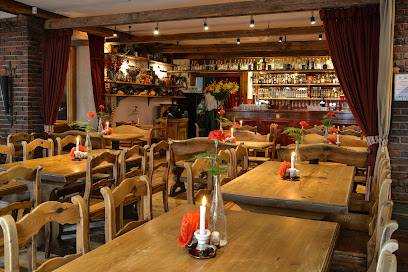
Soul Kitchen
Experience authentic Polish cuisine at Soul Kitchen in Warsaw—where tradition meets modern culinary artistry.
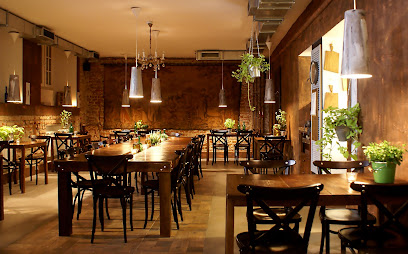
Specjały Regionalne
Experience authentic Polish cuisine at Specjały Regionalne in Warsaw – where tradition meets innovation in every delicious bite.
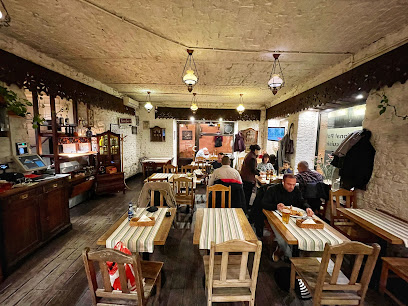
N31 Restaurant & Bar
Experience the finest of Polish cuisine at N31 Restaurant & Bar in Warsaw's bustling Śródmieście district.
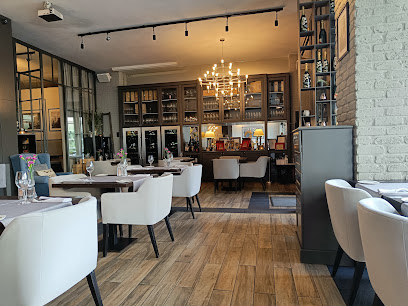
Restauracja Delicja Polska
Experience the heart of Poland at Delicja Polska – where tradition meets taste in every delightful dish.
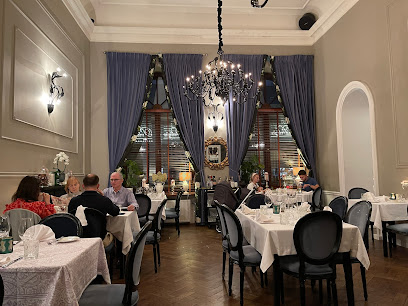
Restauracja Bubbles Warszawa
Discover Bubbles Restaurant in Warsaw: A vibrant hub for tapas lovers and cocktail enthusiasts offering an unforgettable dining experience.
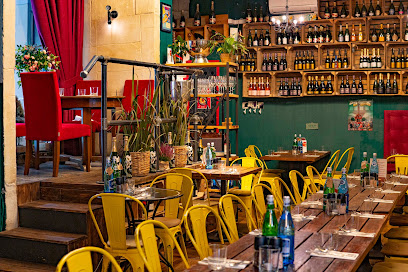
Markets, malls and hidden boutiques
Bazar Miejski
Explore Bazar Miejski in Warsaw for a unique vintage shopping experience filled with eclectic finds and local charm.
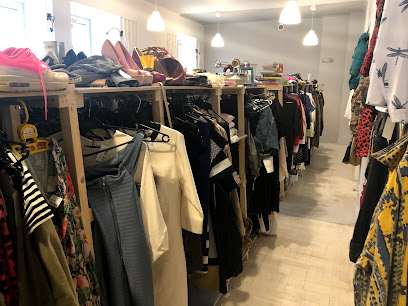
Folkstar Warszawa Śródmieście
Explore Folkstar Warszawa Śródmieście for unique handcrafted pottery and authentic Polish souvenirs, celebrating the culture and artistry of Poland.
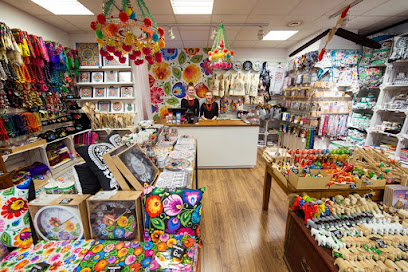
SOUVENIRCITY
Explore the vibrant selection of authentic Polish souvenirs and handcrafted pottery at Souvenir City, a must-visit shop in the heart of Warsaw.
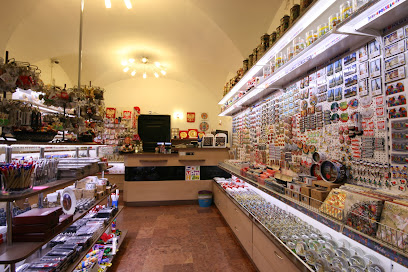
TFH CONCEPT STORE
Explore Warsaw's TFH Concept Store for a unique blend of fashion, art, and vintage treasures, celebrating local creativity in a vibrant atmosphere.
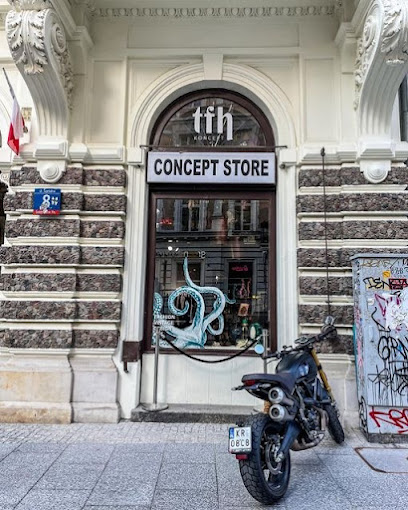
Panda Concept Store
Explore the Panda Concept Store in Warsaw for unique souvenirs, children's clothing, and fun novelties in a vibrant shopping atmosphere.
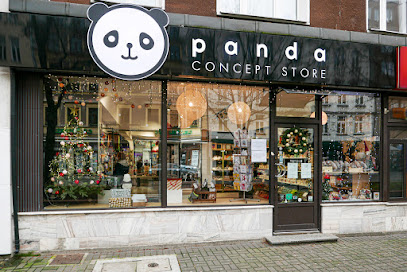
MUSS Vintage Shop
Explore the eclectic world of vintage fashion at MUSS Vintage Shop in Warsaw, where every piece tells a story.
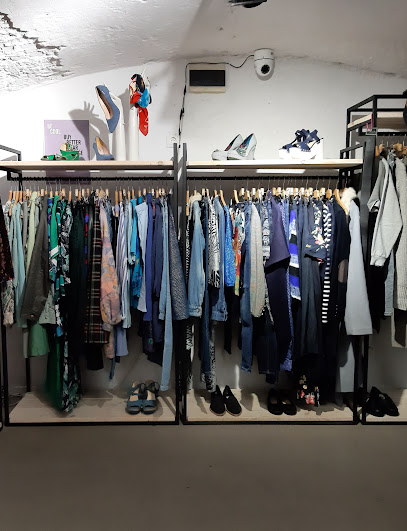
Vintage Store
Explore the Vintage Store in Warsaw for unique, stylish clothing that brings the past to life, offering a delightful shopping experience for fashion enthusiasts.
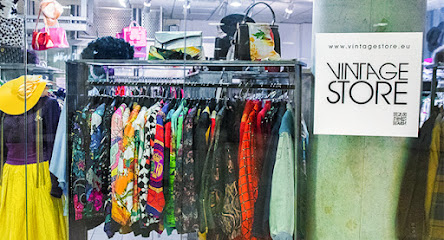
Sklep August Galeria
Explore the heart of Warsaw at Sklep August Galeria, your go-to destination for authentic Polish souvenirs and unique local crafts.
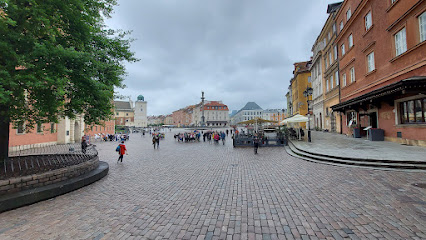
BUTIK UNIQUE
Explore Warsaw’s BUTIK UNIQUE for an extraordinary shopping experience with exclusive fashion pieces and personalized service.
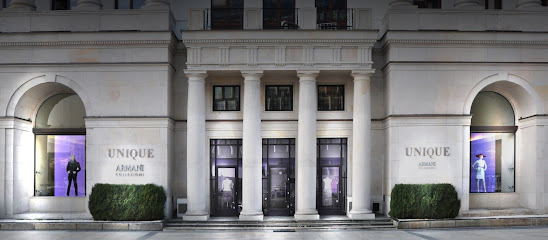
Geschenke für Männer
Explore 'Geschenke für Männer' in Warsaw, a must-visit gift shop offering unique presents and local craftsmanship for every occasion.
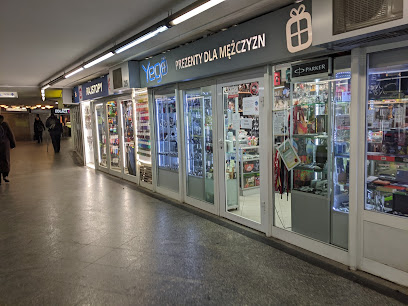
Essential bars & hidden hideouts
Kufle i Kapsle
Discover Kufle i Kapsle, Warsaw's premier brewpub offering an eclectic mix of local craft beers and delicious food in a vibrant atmosphere.
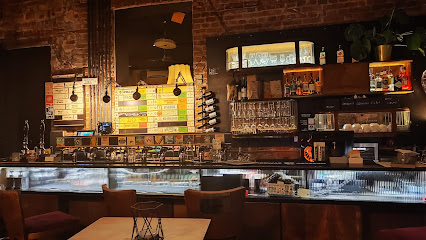
Panorama Sky Bar
Experience the vibrant nightlife of Warsaw at Panorama Sky Bar, where stunning views meet exquisite cocktails and a chic atmosphere.
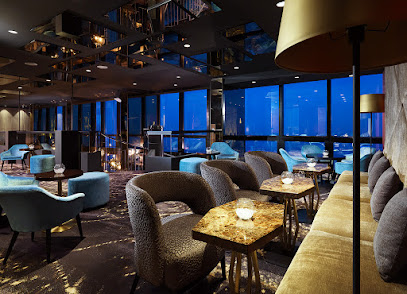
Zamieszanie - cocktail bar
Discover the vibrant cocktail culture at Zamieszanie, Warsaw's trendy bar, offering innovative drinks and a lively atmosphere for unforgettable nights.
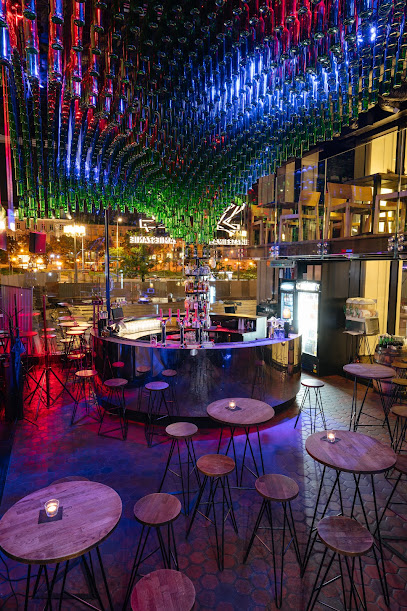
Steam Bar
Discover the vibrant cocktail culture at Steam Bar, Warsaw's premier destination for handcrafted drinks and lively social experiences.
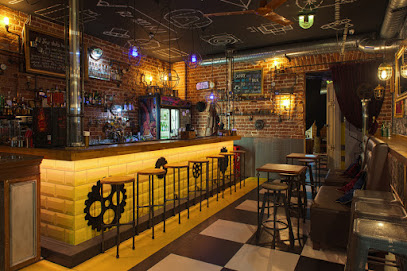
WarSaw Pub
Discover the vibrant WarSaw Pub in Warsaw, where craft beers, delicious food, and lively entertainment create unforgettable experiences.
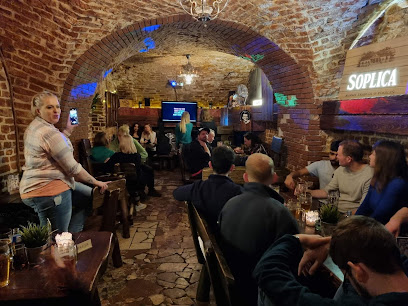
Podwale Bar and Books
Experience the perfect blend of literature and mixology at Podwale Bar and Books, Warsaw's upscale bar for book lovers and cocktail enthusiasts.
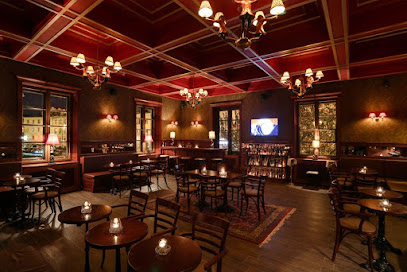
Ramona Bar
Explore the vibrant cocktail culture at Ramona Bar, Warsaw's trendy destination for expertly crafted drinks and a lively atmosphere in Śródmieście.
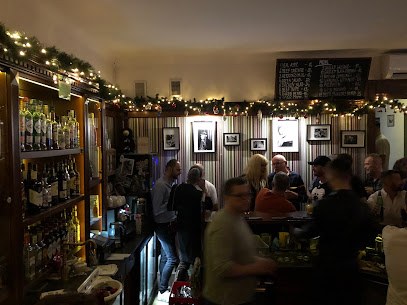
The Roots Cocktail Bar & More
Discover innovative cocktails and a vibrant atmosphere at The Roots Cocktail Bar & More, a premier nightlife spot in the heart of Warsaw.
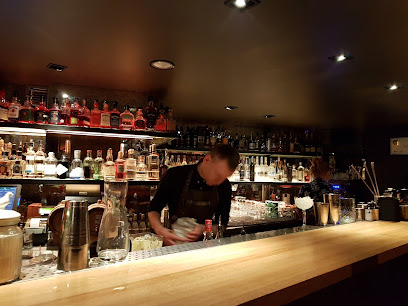
Och i Ach
Discover the lively ambiance of Och i Ach, Warsaw's must-visit cocktail bar and karaoke destination, blending exquisite drinks with unforgettable fun.
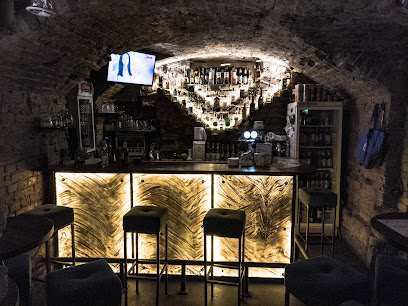
Krucza Cocktail Bar Warszawa
Discover the vibrant nightlife at Krucza Cocktail Bar in Warsaw, where expertly crafted cocktails meet a diverse dining experience.
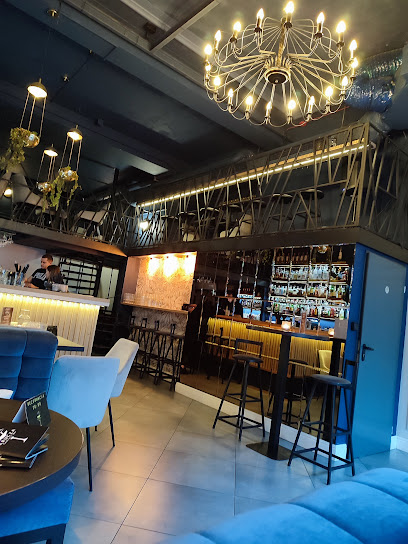
Local Phrases
-
- HelloCześć
[che-sh-ch] - GoodbyeDo widzenia
[do veed-zen-ya] - YesTak
[tak] - NoNie
[nye] - Please/You're welcomeProszę
[pro-sheh] - Thank youDziękuję
[jen-koo-yeah] - Excuse me/SorryPrzepraszam
[pshe-pra-sham] - How are you?Jak się masz?
[yak sheh mah-sh] - Fine. And you?Dobrze. A ty?
[dob-zheh. ah tih] - Do you speak English?Czy mówisz po angielsku?
[chi mo-veesh poh an-gyel-skoo] - I don't understandNie rozumiem
[nye ro-zoo-m-yem]
- HelloCześć
-
- I'd like to see the menu, pleaseChciałbym zobaczyć menu, proszę
[h-ch-ya-wym zo-ba-chich meh-noo, pro-sheh] - I don't eat meatNie jem mięsa
[nye yem myen-sa] - Cheers!Na zdrowie!
[na zdrov-yeh] - I would like to pay, pleaseChciałbym zapłacić, proszę
[h-ch-ya-wym za-pwa-cheech, pro-sheh]
- I'd like to see the menu, pleaseChciałbym zobaczyć menu, proszę
-
- Help!Pomocy!
[po-mo-tsi] - Go away!Idź sobie!
[eedge so-b-yeh] - Call the Police!Zadzwoń po policję!
[zad-zvon po po-lit-syeh] - Call a doctor!Zadzwoń po lekarza!
[zad-zvon po leh-kar-za] - I'm lostZgubiłem się
[zgoo-bee-wem sheh] - I'm illJestem chory
[yes-tem cho-ry]
- Help!Pomocy!
-
- I'd like to buy...Chciałbym kupić...
[h-ch-ya-wym koo-peech] - I'm just lookingTylko się rozglądam
[tih-ko sheh ro-zgwa-dam] - How much is it?Ile to kosztuje?
[ee-leh to kosh-too-yeh] - That's too expensiveTo jest za drogie
[to yest za dro-gyeh] - Can you lower the price?Czy możesz obniżyć cenę?
[chi mo-zhes ob-nee-zhich che-ne]
- I'd like to buy...Chciałbym kupić...
-
- What time is it?Która jest godzina?
[k-too-ra yest go-dzee-nah] - It's one o'clockJest pierwsza
[yesst pyer-vshah] - Half past (10)Pół do dziesiątej
[poow do djeh-shon-tey] - MorningRano
[rah-no] - AfternoonPopołudnie
[po-po-woo-dnyeh] - EveningWieczór
[vyech-oohr] - YesterdayWczoraj
[v-cho-rye] - TodayDzisiaj
[djee-shay] - TomorrowJutro
[yoo-tro] - 1Jeden
[ye-den] - 2Dwa
[d-vah] - 3Trzy
[tshih] - 4Cztery
[ch-te-ryeh] - 5Pięć
[pyench] - 6Sześć
[shesh-ch] - 7Siedem
[sheh-dem] - 8Osiem
[oh-shyem] - 9Dziewięć
[djyev-nye-nt] - 10Dziesięć
[djeh-shon-tsy]
- What time is it?Która jest godzina?
-
- Where's a/the...?Gdzie jest ...?
[gdz-yeh yest] - What's the address?Jaki jest adres?
[yah-ki yest a-dresh] - Can you show me (on the map)?Czy możesz mi pokazać (na mapie)?
[chi mo-zhes mee po-ka-zach (na ma-pyeh)] - When's the next (bus)?Kiedy jest następny (autobus)?
[kye-dy yest nas-tep-ny au-to-boos] - A ticket (to ....)Bilet (do ...)
[bee-let (do)]
- Where's a/the...?Gdzie jest ...?
History of Śródmieście
-
Śródmieście, the central district of Warsaw, was established in the late 14th century as the city's core. It became a center of trade and commerce, with the Royal Castle and the Old Town nearby, serving as a hub for political and cultural activities. The area was characterized by its vibrant market life and the construction of significant buildings, marking the beginning of Warsaw's urban development.
-
In 1596, King Sigismund III Vasa moved the capital of Poland from Kraków to Warsaw, accelerating the growth of Śródmieście. This transition brought an influx of nobility and merchants to the area, leading to the construction of grand palaces, churches, and public buildings that reflected the Baroque style of the time. Notable structures include the Royal Castle and the historic St. Anne's Church.
-
During World War II, specifically in 1944, the Warsaw Uprising marked a significant and tragic chapter in the history of Śródmieście. Polish resistance fighters attempted to liberate the city from German occupation. The uprising lasted 63 days, resulting in extensive destruction of the district. Post-war, the area was left in ruins, with a large portion of its historical architecture demolished.
-
Following the war, Śródmieście underwent a massive reconstruction effort, spearheaded by the socialist government. The rebuilding process aimed to restore the district's historical character, leading to the reconstruction of the Royal Castle and the Old Town, both of which were meticulously restored to their former glory. This period also saw the development of new structures, including the Palace of Culture and Science, a gift from the Soviet Union, which became a symbol of the city.
-
Today, Śródmieście is a vibrant and dynamic part of Warsaw, known for its cultural institutions, shopping areas, and bustling nightlife. The district hosts numerous museums, theaters, and galleries, including the Warsaw National Museum and the Warsaw Philharmonic. It serves as a testament to the resilience and spirit of the city, blending historical heritage with modern urban life.
Śródmieście Essentials
-
Śródmieście is well-connected to the rest of Warsaw. You can easily reach it via public transport, including the metro, trams, and buses. The nearest metro stations are Świętokrzyska and Centrum, which connect to both lines M1 and M2. If you're arriving from Warsaw Chopin Airport, take bus 175 directly to the city center, or opt for a taxi, which takes approximately 20-30 minutes depending on traffic.
-
Śródmieście is highly walkable, allowing you to explore its many attractions on foot. The public transportation system is efficient, with numerous bus and tram lines crisscrossing the area. Bicycles are also available for rent through the Veturilo bike-sharing system, which is a great way to navigate the picturesque streets. Additionally, taxis and ride-sharing services like Uber are readily available.
-
Śródmieście is generally safe for tourists, but standard precautions should be taken. Avoid poorly lit areas at night and keep your belongings secure, especially in crowded places. Areas to be cautious of include the vicinity of the Central Station and some parts near the Vistula River, where petty crimes like pickpocketing can occur.
-
In case of an emergency, dial 112 for police, fire, or medical assistance. The main hospitals in the area include the Medical University of Warsaw Hospital and the Central Clinical Hospital. It's advisable to have travel insurance that covers medical emergencies. For non-emergency health issues, pharmacies are widely available and can assist with over-the-counter medicines.
-
Fashion: Do dress appropriately for the weather and occasions; casual attire is common. Don't wear overly revealing clothing, particularly in religious settings. Religion: Do respect local customs, especially in churches; modest dress is appreciated. Public Transport: Do give up your seat to those in need. Don't eat or drink on public transport. Greetings: Do greet locals with a friendly 'Cześć' (Hello) or 'Dzień dobry' (Good day). Don't be overly formal in casual settings. Eating & Drinking: Do try traditional Polish dishes at local restaurants. Don't eat in public spaces like parks, as it's not typical Polish etiquette.
-
To experience Śródmieście like a local, visit the local markets, such as Hala Mirowska, for fresh produce and local delicacies. Join a walking tour to learn about the rich history of the area, including its architecture and cultural landmarks. Don't miss the chance to explore Łazienki Park, especially during the summer when free concerts are held. Engage with locals at cafes and bars, as they are often eager to share their stories and recommendations.
Nearby Cities to Śródmieście
-
Things To Do in Radom
-
Things To Do in Lodz
-
Things To Do in Lublin
-
Things To Do in Kielce
-
Things To Do in Olsztyn
-
Things To Do in Bialystok
-
Things To Do in Torun
-
Things To Do in Czestochowa
-
Things To Do in Bydgoszcz
-
Things To Do in Elblag
-
Things To Do in Suwalki
-
Things To Do in Tarnow
-
Things To Do in Krakow
-
Things To Do in Rzeszow
-
Things To Do in Gliwice












